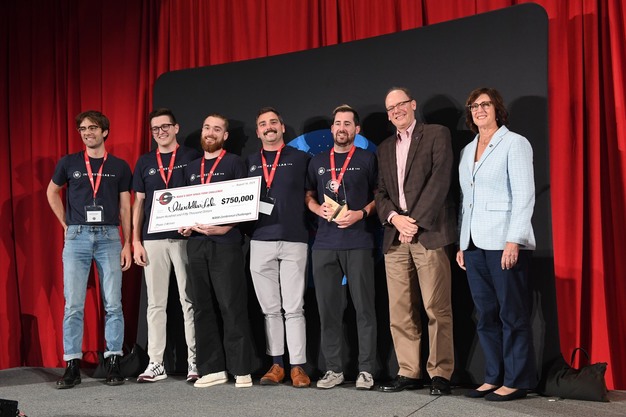NASA has awarded a total of $1.25 million to three U.S. teams in the third and final round of the agency’s Deep Space Food Challenge. The teams developed novel food production technologies that could provide safe, nutritious and tasty food for long-term human space missions.
The competitors’ technologies address NASA’s need for sustainable food systems for long-term space missions, including future Artemis missions and eventual trips to Mars. Advanced food systems could also benefit life on Earth, stimulating food production in parts of the world vulnerable to natural disasters, food shortages, and extreme environmental conditions.
“The Deep Space Food Challenge could serve as a framework for providing astronauts with healthy and delicious food using sustainable mechanisms,” said Angela Herblet, challenge manager for the Deep Space Food Challenge at NASA’s Marshall Space Flight Center in Huntsville, Alabama. “The challenge has brought together innovative and motivated people from around the world who are passionate about developing new solutions that support our agency’s future Moon-to-Mars missions.”

Since the Challenge’s launch in 2021, more than 300 teams from 32 countries have entered with innovative food system designs. The competition, designed and managed by NASA Centennial Challenges at NASA Marshall, is the first coordinated effort of its kind between NASA and the CSA (Canadian Space Agency), which ran its own challenge in parallel.
Four American teams competed in Phase 3, which began in September 2023. The Methuselah Foundation partnered with Ohio State University to support the final phase of the competition, which included a two-month testing and demonstration period on the university’s campus in Columbus, Ohio. Each U.S. team in Phase 3 received $50,000 and brought its technology to Columbus for testing.
During this phase, teams constructed full-fledged food production systems that had to meet development milestones such as safety, sensory testing, palatability and harvest quantities. Each team worked with four “Simunauts,” a group of Ohio State University students who led the testing and demonstrations for Phase 3 during the eight-week period. Data collected during the testing was presented to a panel of judges who determined the winner.
The competition culminated at the Deep Space Food Symposium, a two-day networking and learning summit at the Nationwide and Ohio Farm Bureau 4-H Center on August 15 and 16. Throughout the event, attendees met Phase 3 finalists, saw demonstrations of food production technologies, and participated in panel discussions with experts from NASA, government, industry, and academia. Competition winners were announced at an awards ceremony at the end of the symposium.
The U.S. winner and recipient of the $750,000 grand prize is Interstellar Lab of Merritt Island, Florida. Led by Barbara Belvisi, the small company combines multiple autonomous phytotrons and environmentally controlled greenhouses to support a growing system with a self-sustaining food production mechanism that produces fresh vegetables, microgreens and insects necessary for micronutrients.
The two runners-up each received $250,000 for the success of their food systems: Nolux from Riverside, California, and SATED from Boulder, Colorado.
Nolux, a university team led by Robert Jinkerson, constructed an artificial photosynthesis system that can produce plant and fungal-based food without biological photosynthesis.
SATED, which stands for Safe Appliance, Tidy, Efficient & Delicious, is a one-man team run by Jim Sears that has developed a variety of customizable foods, from pizza to peach pie. The product is fire-safe and is designed using long-lasting and locally grown ingredients.
NASA also selected and awarded an international team as the winner of Phase 3: Solar Foods from Lappeenranta, Finland, has developed a food production system through gas fermentation based on protein production by single cells.
In April 2024, CSA and Impact Canada awarded the grand prize of their Parallel Challenge to Ecoation, a Vancouver-based small business specializing in greenhouses.
“Congratulations to the winners and all the finalist teams for their years of work on innovative solutions for the Deep Space Food Challenge,” said Amy Kaminski, program manager for NASA Awards, Challenges and Crowdsourcing at NASA Headquarters in Washington. “These food production technologies could change the future of food availability on other worlds and our home planet.”
Also in attendance at the symposium was celebrity chef and cookbook author Tyler Florence. After spending time with each finalist team and learning about their food systems, Florence selected one team to receive the Tyler Florence Award for Culinary Innovation. Team SATED from Boulder, Colorado, received the award for their system, which impressed Florence with their innovative approach to the challenge.
Source: nasa.gov

